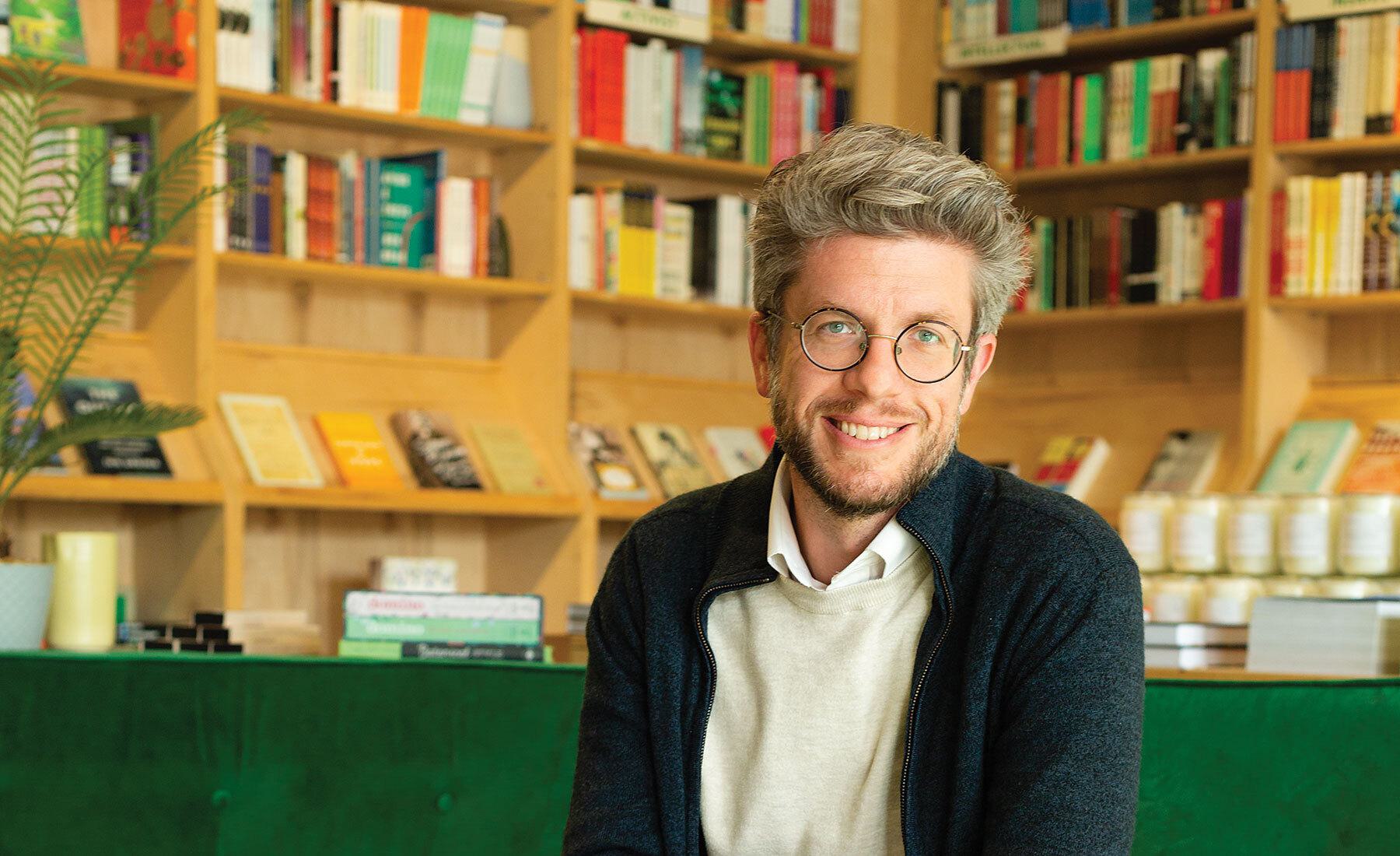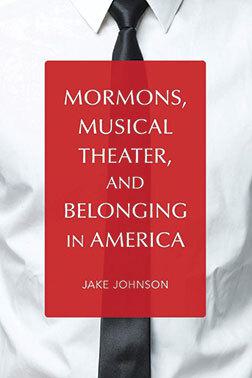by Terry Phelps

Except for a few years of graduate school elsewhere, Jake Johnson, associate professor of musicology, has been at Oklahoma City University since age 12, when his mother drove him 90 miles from Holdenville once a week after school to take piano lessons with Professor Ernestine Scott. His lessons with her continued when he enrolled at OCU to pursue a Bachelor of Music in Piano Performance, completed in 2007.
In his first year at OCU, Johnson married classmate BrieAnn, who now teaches English at Casady School in Oklahoma City. They have two daughters: Cora, 12, and Magnolia, 10. Needless to say, they all love music and theater.
Johnson earned a master’s at the University of Oklahoma and a Ph.D. at the University of California, Los Angeles before returning to OCU in 2017. He teaches a variety of undergraduate and graduate courses in music history. He says he most enjoys teaching writing and “helping students find creative solutions to write about sound, which is one of the most challenging things to write about and ought to be at least as creative an endeavor as performing and writing music.”
His courses include “Music and the Human Experience,” “Writing for Music,” “Music Topics Post-1970,” “Musical Theatre’s Hip-Hop Aesthetic,” and other seminars. Students in Johnson’s “Sound and Religion” seminar build relationships with Oklahoma City religious communities, attend their formal and informal gatherings, and record audio and video samples of various religious happenings.
“Religious sounds can be as predictable as a Catholic Mass or the Muslim call to prayer, but when religious communities gather, they also create other sound worlds that are in some ways even more compelling,” he said.
Students record funerals, potluck dinners, protests, and more everyday encounters with religion.
Johnson has several publications and has presented at numerous conferences. He said he feels fortunate to be able to blend his academic and performance interests, playing piano for faculty chamber recitals and other events.
As a scholar of American musical theater, he finds OCU to be a rich and rewarding performance environment. His first book, “Mormons, Musical Theater, and Belonging in America,” published in 2019, makes the case that American religion and American musical theater are intimately entwined.

A second book, “Lying in the Middle: Musical Theater and Belief at the Heart of America,” is expected in fall 2021. Johnson is interested in asking fresh questions of American music, especially focused on the lived experience of musical communities, often asking, “What job are people hiring this music to do for them?”
He collaborated last year on a digital mapping initiative with scholars from Ohio State University and Michigan State University called the American Religious Sounds Project, an interdisciplinary endeavor to understand the soundscape of religious expression. The goal is “to ask, in short,” Johnson said, “two related questions: 1) what does religion sound like? and 2) what makes a sound a specifically religious sound?”
Johnson served as a research site coordinator for ARSP, which gave OCU recording equipment in exchange for Johnson and his students’ providing data for the sound archive. Students establish a relationship with at least one religious community in the Oklahoma City area and arrange visits to collect audio data about them. The students record the sounds of religion including music, prayer, and meditation. They also visit the same community in an event outside of a religious space to collect sound. The point, Johnson said, is to better understand how religion and sound are intertwined in sacred and everyday ways.
In 2018, Johnson worked with OCU’s Center for Interpersonal Studies through Film and Literature to screen the documentary “This May Be the Last Time,” a story of sound and hymn-singing surrounding Native American religious communities near Hughes County, Oklahoma. The documentary was directed by fellow Holdenville native Sterlin Harjo. Johnson plans to recruit teachers around the state to build a digital map of Oklahoma’s religious sounds. He hopes the data gathered could be used by elementary, middle, and high school teachers “to help Oklahoma students better understand and appreciate the relationship religion and sound share and how both have shaped the state’s history.”
He is now writing an experimental biography of West Coast music patron Betty Freeman under the working title “Beverly Hills Housewife: Betty Freeman, the Music Room, and a Story of New Music in Los Angeles.”
